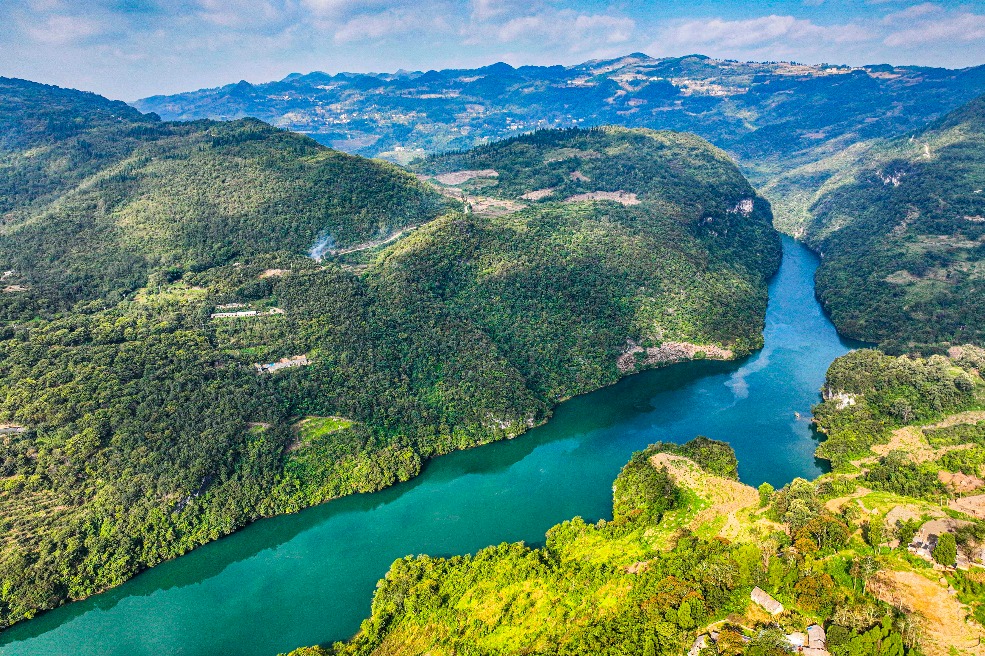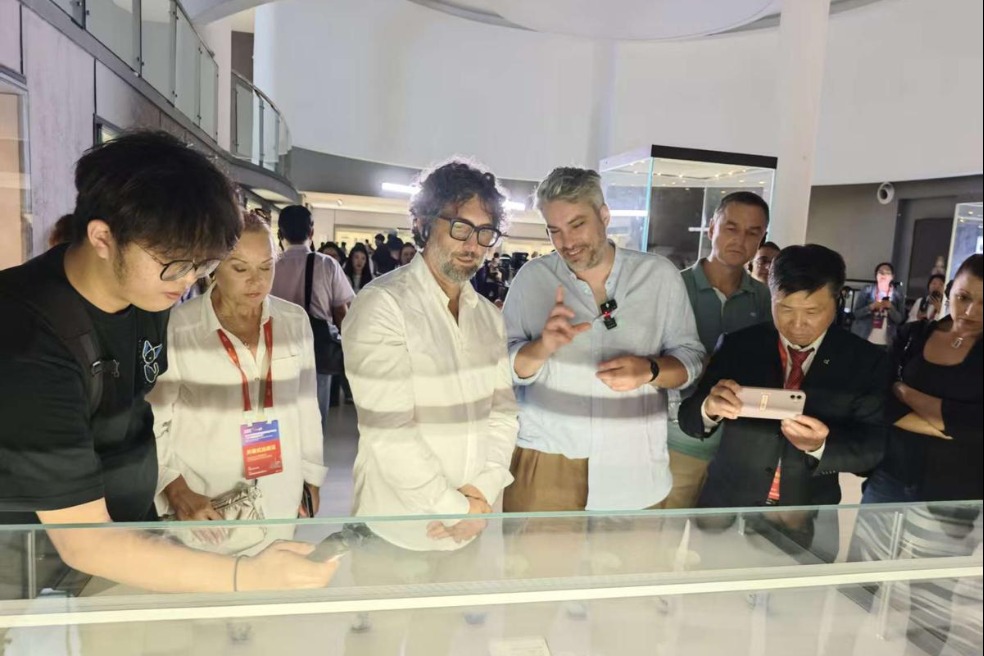Scientists discover rare meteorite relics in Chang'e 6 lunar samples

GUANGZHOU -- Scientists studying lunar samples brought back by China's Chang'e 6 mission have identified rare meteorite relics that could reshape our understanding of mass transfer in the Solar System.
The study, published in the latest issue of the journal Proceedings of the National Academy of Sciences, was led by a research team from the Guangzhou Institute of Geochemistry under the Chinese Academy of Sciences.
The CI chondrites are so rare on Earth that they account for less than one percent of all collected meteorites. In contrast to Earth, the Moon has almost no atmosphere and plate tectonics, meaning it preserves a pristine record of ancient asteroid impacts — like a "natural archive."
Using advanced techniques to examine mineral composition and oxygen isotopes, the researchers scrutinized lunar soil and confirmed that the fragments came from CI-like chondrites — a type of meteorite rich in water and organic materials that typically originates in the outer Solar System.
The study implies that the Earth-Moon system may have experienced more collisions from carbonaceous chondrites than scientists had previously estimated.
This discovery not only indicates that material from the outer Solar System can migrate to the inner Solar System, but also has important implications for explaining the origin of water on the lunar surface, said Lin Mang, a researcher at GIG.
It also provides new directions for future research on the distribution and evolution of lunar water resources, he added.
Moreover, the study systematically established methods for identifying meteoritic materials in extraterrestrial samples.
In 2024, Chang'e 6 made history by bringing 1,935.3 grams of lunar far-side samples back to Earth. These samples were collected from the South Pole-Aitken Basin, the largest, deepest, and oldest basin on the moon.
- Scientists discover rare meteorite relics in Chang'e 6 lunar samples
- Journey of a Xinjiang textile worker
- China's Harbin enters heating season
- Guquan converter station undergoes 7-day annual overhaul in Anhui
- China launches new magnetic resonance platform to support BCI technology
- HKSAR's 7th LegCo surpasses predecessor with 49 extra bills pass






































